RRS Discovery has given “meaning and direction” to Dundee since it arrived in 1986, according to Alison Neil, the Dundee-based chief executive of the South Georgia Heritage Trust.
However, she has warned that the “heart would be ripped out” of the city if Captain Scott’s famous ship was ever allowed to fall into decay or if it left.
The comment has been made by Ms Neil, who is also a trustee of Dundee Heritage Trust, as urgent restoration work is carried out on the famous Dundee-built ship.
It follows recent concerns about the future of the Discovery Point café and reports that Dundee Heritage Trust faces “enormous financial pressures”.
RRS Discovery was purpose-built in the city to take explorer Captain Robert Falcon Scott and Ernest Shackleton to the Antarctic in the early 1900s.
But after a battering from the Scottish weather, the ageing wooden structure of the ship, which returned to Dundee 38 years ago, is beginning to decay.
Having recently received a new £1.4 million funding award, the first phase of the work, focusing on the stern, is expected to take about seven months.
The ship was moved to its current home on the waterfront in 1992.
Now, with the visitor attraction remaining open while essential repairs continue, Ms Neil is challenging more folk from Dundee and the wider area to reacquaint themselves with the city’s heritage and to celebrate its remarkable history.
RRS Discovery and Verdant Works at the ‘heart of Dundee’
“As an adopted Dundee citizen and real lover of the city, I do feel that RRS Discovery and also Discovery Point and Verdant Works are really at the heart of Dundee,” said the 55-year-old.
“It gives Dundee meaning and direction to have that ship in the city.
“I think we all feel like the heart would be ripped out of Dundee if the ship wasn’t there any longer.
“Obviously it’s got an incredible aura about it.
“RRS Discovery not only played its part in polar exploration history of Britain, it also laid the foundations for marine biology the world over as a science ship.
“But we should all really be making sure that Dundee retains RRS Discovery as its jewel in the crown for future years.
“I think Dundee Heritage Trust is a very forward looking organisation.
“But when it comes to the ship, it’s going to remain in Dundee if Dundonians first and foremost take the time to go to Discovery Point, find the ship again and rediscover all the fantastic exhibitions which are being updated all the time.”
Opportunities to build Shackleton-related links between Dundee and South Georgia
Ms Neil first visited the ship in the early ‘90s, not long after she arrived in the city.
But it was years later, when dining in the ward room, that she felt the history of RRS Discovery “reverberate”.
Sitting at the table once used by legends such as Captain Scott and Sir Ernest Shackleton, she could imagine these icons of polar exploration planning, writing and discussing their expedition.
Ms Neil admits that before she became chief executive of the South Georgia Heritage Trust in 2006, she didn’t fully appreciate Dundee’s polar heritage.
But now an important element of her work is about growing the links between the trust, which runs a museum on the South Atlantic island, and Dundee Heritage Trust, which manages RRS Discovery and Verdant Works.
She’s particularly excited about opportunities to celebrate Shackleton-related heritage.
For example, Dundee Heritage Trust will soon receive the ‘Hope Point Cross’ from South Georgia which was erected in memory of Shackleton and the famous Quest expedition.
The cross is currently on its way to Dundee aboard the British Antarctic Survey’s RRS Sir David Attenborough and will be exhibited at Discovery Point.
Capturing memories of whalers
The two organisations are also working together on the Whalers’ Memory Bank.
Pulling together memories and artefacts of those involved in the whaling industry, it aims to celebrate the community aspects of these men who were working so far away from home and had to carve out a life for themselves in such remote and hostile places.
“These whalers were kind of the heroes of their communities,” she said.
“We just want to try and capture that and help people to actually see how the whalers would have been perceived through the lens of time rather than as we see them now.
“Obviously the South Georgia Heritage Trust and Dundee Heritage Trust are also very interested in the conservation of wildlife and how we can turn around the sort of environmental story of both Dundee and also the Antarctic.”
How did Alison Neil become Dundee-based CEO of South Georgia Heritage Trust?
Brought up in Dumfries, Ms Neil studied philosophy at Glasgow University.
In 1991, she moved to Dundee to do a computing transition course at the university.
In 1992, that helped her get a job at NCR where she worked for 13 years, studying for an MBA at Abertay University in the process.
In 2006, a friend suggested she apply for a job at the then newly created South Georgia Heritage Trust.
He was sitting in an office with former Royal Marines Brigadier David Nicholls – a former commander of the British forces in the Falkland Islands – who’d served at RM Condor in Arbroath.
David had visited South Georgia as a mountaineer and had led groups of teenagers there on outward bound courses.
But David realised there wasn’t any charity benefiting the island that the people who were visiting could donate to. In 2005, the South Georgia Heritage Trust was born.
Theoretically, the charity could have been based anywhere.
But because David had a close connection with Tayside from his RM Condor days, he established the trust at Dundee University.
Sadly, just three weeks after Ms Neil joined the trust, David died from a sudden heart attack, aged just 57. It was a huge shock for everyone.
With the support of the trustees and a “bit of faith”, they decided to keep the charity going.
This was the beginning of Ms Neil’s involvement.
Major achievements – and learning about Dundee’s rich polar heritage
Over the next decade under her leadership the South Georgia Heritage Trust successfully eradicated rats and mice from the island – the largest project of its kind ever undertaken – at a cost of £10 million, almost all of which the trust raised from private sources.
In 2019, she was awarded an MBE for services to conservation.
And yet it wasn’t until she started that she fully appreciated Dundee’s polar heritage.
As well as learning about RRS Discovery, she discovered some of the first whaling ships that went to the Southern Ocean had been built in Dundee too.
In 2009, when the trust moved into Verdant Works museum, she realised it was oil from the whales of South Georgia that was used in the Dundee jute industry.
When the trust bought a replica of the James Caird, which was one of the lifeboats that Shackleton and his men famously used to escape from the ice when their Endurance ship was crushed, she realised it was named after the Dundee jute baron of the same name who’d helped sponsor the Endurance expedition.
Ms Neil, whose interests led her to join Dundee Heritage Trust, thinks Dundee should be “really proud” of its polar heritage.
But sometimes she thinks people need reminding.
Dundee environmental efforts can help send ‘message of hope’ to the world
With RRS Discovery now an integral part of the transformative Dundee Waterfront development including V&A Dundee and the forthcoming Eden Project, she thinks the hearts of tourists must “sing” when they step out of Dundee railway station.
But she hopes more Dundonians can feel that way too.
Meanwhile, in South Georgia itself, the South Georgia Heritage Trust is continuing efforts to conserve ‘Shackleton’s villa’ at Stromness whaling station.
There are also plans to showcase work related to Commensalis in Dundee in 2025.
The ambitious sculpture, to be sited on the Flensing Plan at Grytviken Whaling Station, was commissioned to reinterpret Grytviken and South Georgia, once the centre of Antarctic whaling, where over 175,000 whales were slaughtered during the years of the industry.
Thanks to humankind’s changing attitude to nature and the whale, South Georgia’s wildlife is resurging and the island has been called ‘an ecosystem in recovery’ by Sir David Attenborough.
With changing attitudes to nature and the need for resolute stewardship of the oceans, it’s believed Commensalis can send a message of hope to the world.
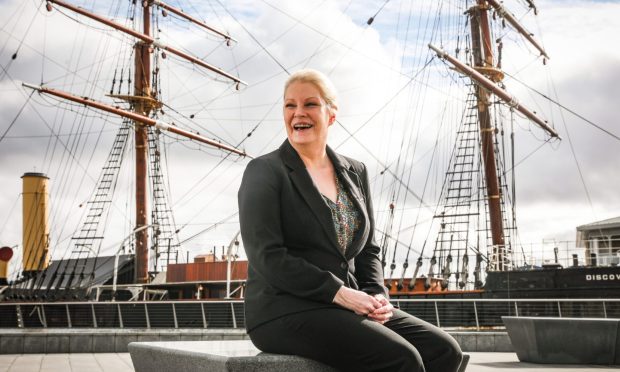
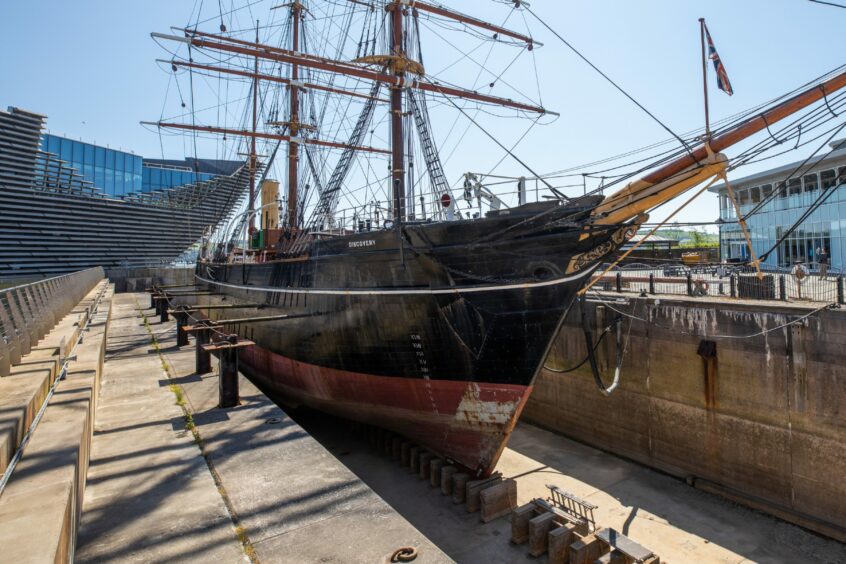

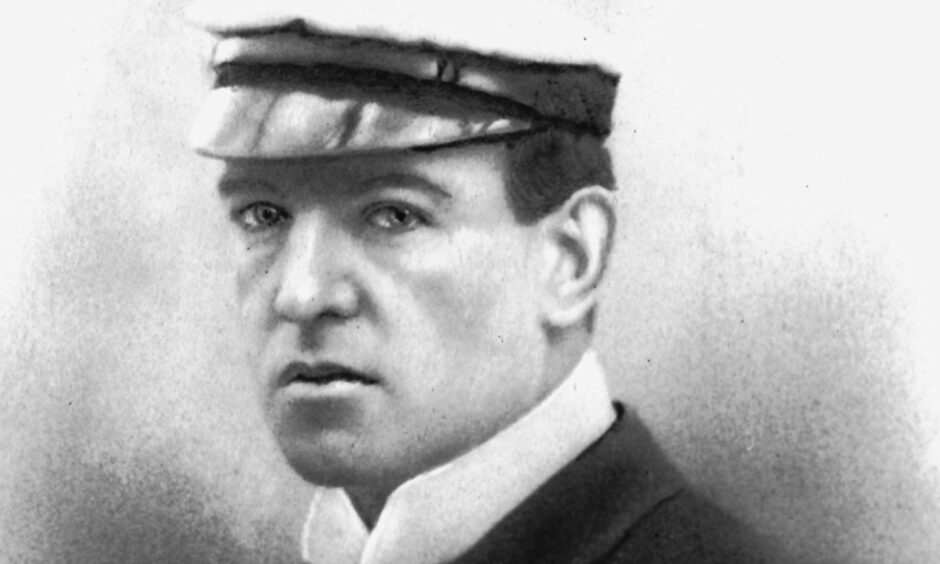
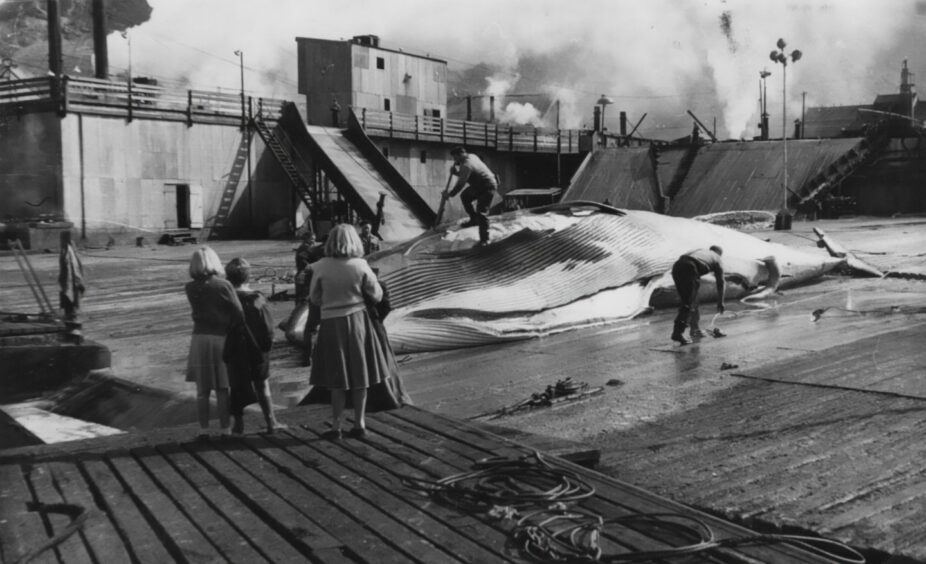

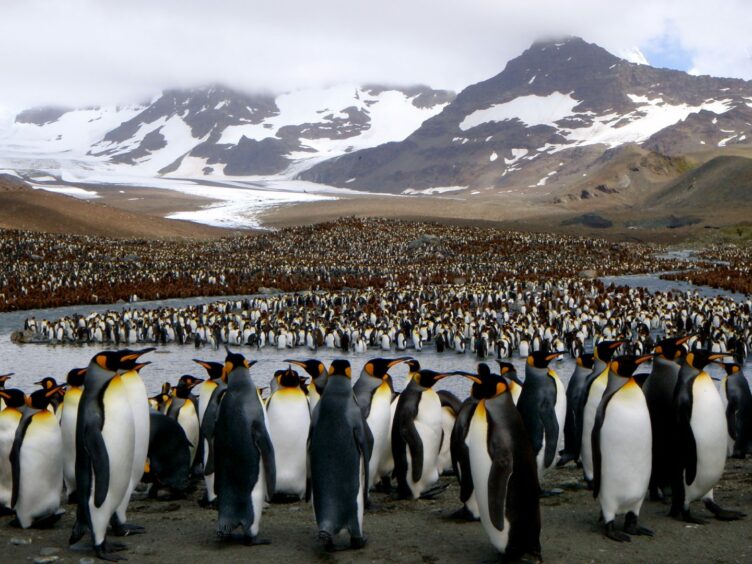
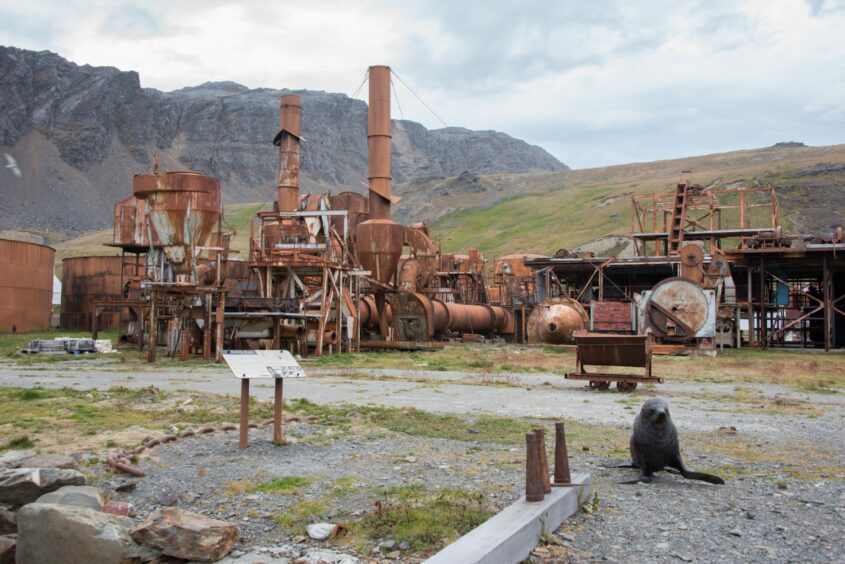
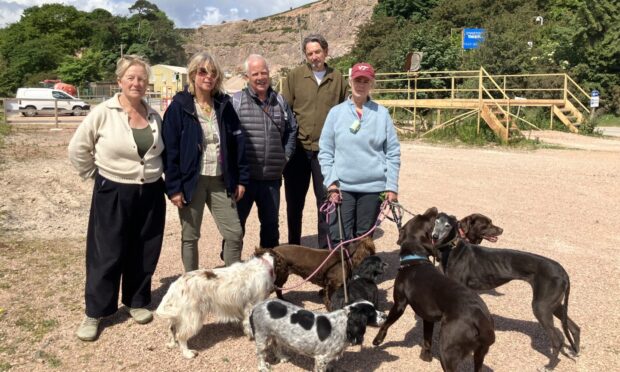









Conversation